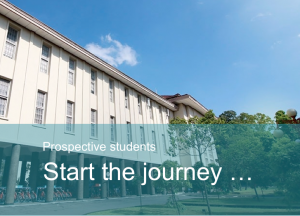Program Learning Outcomes (PLOs)
To acquire a graduate profile as above, a Program Learning Outcome (PLO) of Master Program in Computer Science is defined. The learning outcomes of the program consist of four elements, namely (1) Attitudes and Values, (2) Mastery of Knowledge, (3) Working Ability, dan (4) Professional Ability. The learning outcomes of the program, as shown in table below, have been equated with level 8 in the IQF.
Program Learning Outcomes Table
| Elements | PLOs | Description |
| Attitudes and Values | [PLO1] Attitudes and Values | Graduates possess a set of universal and fundamental values and principles, including universal ethics, patriotism and the promotion of world peace, sensitivity towards social and environmental issues, acceptance of pluralism and fair play, and adherence to the rule of law. |
| Knowledges | [PLO2] Foundational and Theoretical Knowledges | Graduates are able to demonstrate mastery of concepts, theories, methods, models, and algorithms in the field of computer science, with an emphasis on computational science, computer systems, and data analysis. |
| [PLO3] Applied Knowledges | Graduates have the ability to apply concepts, theories, methods, models, and algorithms in the development of: computational science-based systems; computer system; or data analysis and visualization. | |
| Working Ability | [PLO4] Problem Solving Skill | Graduates have the ability to analyze
and formulate science and technology problems in the field of computer science to formulate and design alternative solutions through interdisciplinary or intradisciplinary approaches so as to produce creative, innovative and tested work. |
| Professional
Ability |
[PLO5] Professional Attitude | Graduates have a professional attitude =which includes the ability to work independently or in groups, leadership, a sense of responsibility, effective communication both orally and in writing, and skills to follow developments in the field of computer science in the context of lifelong learning. |
Linkage of Learning Outcomes with Bloom’s Taxonomy
The learning outcomes of the Computer Science Masters Study Program follow the learning domains based on Bloom’s Taxonomy which includes Knowledge, Attitude, and Skills. The relationship between each learning achievement and the learning domain is presented in the following table.
Linkage of PLO with the Learning Domain of Bloom’s Taxonomy Table
| Learning Outcome | Cognitive (Knowledge) |
Affective
(Attitude) |
Psychomotoric
(Skills) |
| PLO1 | ∨ | ||
| PLO2 | ∨ | ||
| PLO3 | ∨ | ∨ | |
| PLO4 | ∨ | ∨ | |
| PLO5 | ∨ | ∨ | ∨ |

